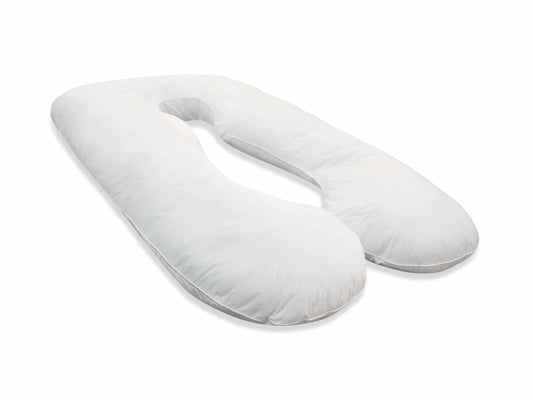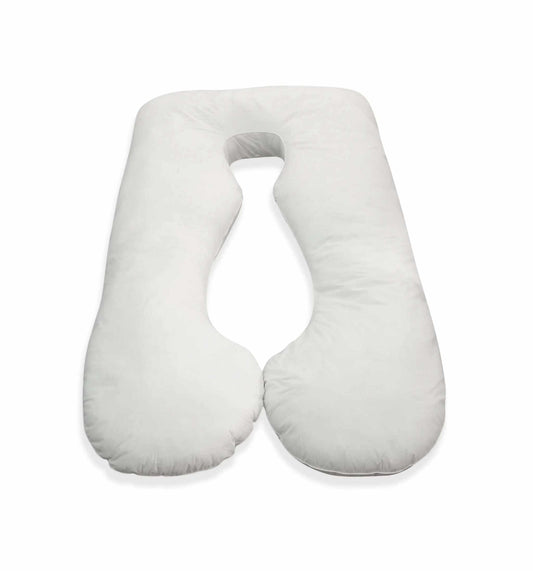Fibromyalgia is a chronic condition that affects millions of people worldwide. Its symptoms, including widespread pain, fatigue, and cognitive difficulties, can make it challenging to manage daily tasks, especially in the workplace. However, with the right work strategies and a positive mindset, it is possible to navigate through fibromyalgia and succeed in your career. In this blog post, we will discuss some tips and techniques for developing a winning mindset and thriving at work while managing fibromyalgia.
Photo Credit: Dr Anthony Ordman
Understanding Fibromyalgia and Its Impact on Work Performance
Fibromyalgia is a complex and often misunderstood condition that can have a significant impact on work performance. Living with chronic pain, fatigue, and cognitive difficulties can make it challenging to meet the demands of a job and maintain productivity.
One of the key aspects of understanding fibromyalgia's impact on work performance is recognising that it is a fluctuating condition. Symptoms can vary from day to day and even within the same day, making it difficult to predict how someone with fibromyalgia will feel or function at work. This unpredictability can lead to frustration and feelings of inadequacy for individuals trying to manage their condition while maintaining a professional career.
It is crucial for both employees and employers to acknowledge and accommodate the unique challenges that fibromyalgia presents in the workplace. This can include providing flexible work schedules, allowing for breaks to manage pain and fatigue, and creating an ergonomic environment that promotes comfort and reduces physical strain.
Workplace accommodations for individuals with fibromyalgia can make a significant difference in job performance and overall wellbeing. Simple changes like using cushioned chairs or providing access to adjustable desks can alleviate pain and improve productivity. Additionally, encouraging employees to take advantage of tools and resources such as pain management techniques, stress reduction techniques, and work-life balance strategies can help them better cope with their symptoms and maintain a successful career.
Employers should also foster an open dialogue about fibromyalgia and raise awareness among colleagues to create a supportive work atmosphere. By promoting understanding and empathy, employees with fibromyalgia can feel more comfortable discussing their needs and limitations, reducing feelings of isolation and increasing job satisfaction.
Photo Credit : Dr Anthony Ordman
Proactive Measures for Coping with Fibromyalgia at Work
Living with fibromyalgia can present many challenges in the workplace. However, by taking proactive measures, you can cope with your symptoms and still thrive professionally. Here are some strategies to help you manage fibromyalgia at work and achieve professional success.
Firstly, it is important to prioritise your health at work. This means taking regular breaks to rest and manage your pain and fatigue. Incorporating relaxation techniques such as deep breathing exercises or mindfulness can also help reduce stress and improve your overall wellbeing. Additionally, implementing a regular exercise routine outside of work can contribute to managing fibromyalgia symptoms. Even light physical activity, such as stretching or walking, can increase energy levels and reduce pain.
Ergonomic solutions can also make a significant difference in your work environment. Investing in a supportive chair or using pillow support for your back or neck can alleviate discomfort and prevent worsening of symptoms. Adjusting your desk height and positioning your computer monitor at eye level can also reduce strain on your muscles and joints.
Another crucial aspect of coping with fibromyalgia at work is effectively managing your workload and time. Breaking tasks into smaller, manageable chunks can help you stay focused and prevent becoming overwhelmed. Prioritising your tasks and setting realistic deadlines can also ensure you accomplish your goals without overexerting yourself.
It is essential to communicate openly and honestly with your colleagues and supervisors about your condition. Educate them about fibromyalgia and its impact on your ability to work. This will create understanding and empathy, enabling them to provide the necessary support. In addition, it is crucial to be proactive in seeking reasonable accommodations under disability legislation, if necessary. This may include adjustments to your work schedule, workload, or workspace to ensure you can perform your job to the best of your ability.
Adapting the Workplace Environment to Cater to Fibromyalgia Symptoms
Living with fibromyalgia can be challenging, but with the right adaptations in the workplace environment, you can create a space that caters to your unique needs and helps you manage your symptoms effectively. Here are some tips for adapting the workplace environment to cater to fibromyalgia symptoms:
- Ergonomics: Making simple adjustments to your workspace can make a significant difference in your comfort levels. Consider investing in an ergonomic chair that provides proper support for your back and neck. Use cushioned seating or back support pillows to alleviate discomfort. Adjust your desk height and position your computer monitor at eye level to reduce strain on your muscles and joints. These comfort measures can help reduce pain and fatigue throughout the day.
- Lighting and Noise Control: Bright and fluorescent lighting can be overwhelming for individuals with fibromyalgia. If possible, adjust the lighting in your workspace to a softer, more natural light. Consider using desk lamps or dimmers to control the lighting levels. Noise can also be a trigger for fibromyalgia symptoms. If you find that noise is affecting your concentration and causing stress, consider using noise-cancelling headphones or playing soothing music to create a more peaceful work environment.
- Flexible Work Schedule: Talk to your employer about the possibility of a flexible work schedule. This can involve adjusting your start and end times to avoid rush hour traffic or scheduling breaks throughout the day to rest and recharge. Having the flexibility to manage your energy levels can greatly improve your productivity and overall wellbeing.
- Assistive Devices: Consider using assistive devices that can make your work tasks easier to manage. For example, using ergonomic keyboards or voice recognition software can reduce the strain on your hands and wrists. Similarly, using a standing desk or adjustable workstation can allow you to change positions throughout the day and minimise the impact on your joints.
By implementing these adaptations in the workplace, you can create a more comfortable and supportive environment that promotes your physical and mental wellbeing. Remember, everyone's experience with fibromyalgia is unique, so it's essential to experiment and find what works best for you. With these coping skills and adjustments, you can better manage your symptoms, continue to excel in your career, and thrive in the workplace.
Open Dialogue and Awareness – Crucial Steps towards Creating a Supportive Work Atmosphere
Creating an open dialogue and raising awareness about fibromyalgia in the workplace is crucial for fostering a supportive work atmosphere. When colleagues and employers understand the challenges that individuals with fibromyalgia face, they can provide the necessary support and accommodations, reducing feelings of isolation and increasing job satisfaction.
One way to promote open dialogue is by educating others about fibromyalgia and its impact on work performance. By sharing information about the condition, its symptoms, and the challenges individuals with fibromyalgia face, you can increase understanding and empathy among your colleagues. This education can help dispel misconceptions and stereotypes surrounding fibromyalgia, promoting a more inclusive and supportive work environment.
Communication is key in creating an open dialogue. By openly discussing your needs and limitations with your colleagues and supervisors, you can ensure that they are aware of how fibromyalgia affects your ability to work. This transparency can lead to adjustments and accommodations that can make a significant difference in your career management. For example, your employer may be willing to provide flexible work hours or breaks to manage pain and fatigue. By speaking up about your needs, you are advocating for yourself and creating a work environment that caters to your unique circumstances.
In addition to open dialogue, it is important to raise awareness about fibromyalgia among colleagues. This can be done through presentations, workshops, or awareness campaigns. By sharing personal stories and experiences, you can help others understand the daily challenges faced by individuals with fibromyalgia. This increased awareness can lead to a more compassionate and supportive workplace, where colleagues actively seek to understand and accommodate the needs of their peers.
Creating a supportive work atmosphere involves both employers and employees working together to create an environment that fosters understanding, empathy, and collaboration. By promoting open dialogue and raising awareness about fibromyalgia, we can create workplaces that empower individuals with fibromyalgia to thrive in their careers and achieve professional success. Through open communication, understanding, and a willingness to accommodate, we can create a work environment where everyone feels valued, supported, and able to contribute their best.
Seeking Legal Protection and Accommodations - Your Rights as an Employee with Fibromyalgia
If you're dealing with fibromyalgia while managing the complexities of your job, it's crucial to be aware of your rights as an employee and to actively pursue the necessary legal safeguards and accommodations. In the UK, fibromyalgia is acknowledged as a disability under the Equality Act 2010, obliging employers to make reasonable adjustments for employees with this condition. Similarly, in the USA, fibromyalgia is recognized as a disability by the SSA, potentially qualifying individuals for Social Security disability benefits. Comparable considerations may exist in Canada, Australia, and various EU countries like Ireland. It's essential to familiarize yourself with the legal aspects of disability to ensure you don't overlook any available assistance or support.One of the first steps in seeking legal protection and accommodations is to have an open and honest conversation with your employer about your condition. By discussing your needs and limitations, you can work together to find solutions that allow you to perform your job effectively. This may include adjustments to your work schedule, workload, or workspace, as well as providing additional support or resources to help you manage your symptoms.
It is important to familiarise yourself with your rights as an employee with fibromyalgia. For example, in the UK, under the Equality Act 2010, employers are prohibited from discriminating against individuals with disabilities, including fibromyalgia. This means that you cannot be treated unfairly or disadvantaged in the workplace because of your condition. Also, if it's preventing you from working. If you believe you are experiencing discrimination or unfair treatment, it may be necessary to seek legal advice and explore your options for recourse.
In addition to legal protections, it is also important to develop coping skills that can help you manage your fibromyalgia symptoms at work. This may include techniques such as stress management, relaxation exercises, and pain management strategies. By developing these skills, you can better manage your symptoms and minimise their impact on your work performance.
Remember, seeking legal protection and accommodations is not a sign of weakness or defeat. It is a necessary step to ensure that you have the support and resources you need to succeed in your career while managing fibromyalgia. By advocating for yourself and asserting your rights, you can create a work environment that is understanding, accommodating, and supportive.
A Healthy Lifestyle Outside of Work to Manage Fibromyalgia Better
Maintaining a healthy lifestyle outside of work is essential for managing fibromyalgia and enhancing your overall wellbeing. Whilst work plays a significant role in our lives, it is equally important to prioritise self-care and adopt healthy habits to support your fibromyalgia management. Here are some strategies and coping skills to incorporate into your daily life to better manage your condition outside of the workplace.
First and foremost, regular physical activity is crucial for managing fibromyalgia symptoms. Engaging in low-impact exercises such as swimming, walking, or yoga can help reduce pain, improve sleep quality, and increase overall energy levels. Start with small steps and gradually increase your activity level to avoid overexertion.
Maintaining a well-balanced diet is also essential for managing fibromyalgia. Incorporate nutrient-rich foods such as fruits, vegetables, whole grains, and lean proteins into your meals. Avoiding trigger foods such as processed foods, caffeine, and artificial additives can help minimise symptom flare-ups. Stay hydrated throughout the day by drinking plenty of water.
Stress management is crucial for individuals with fibromyalgia. Explore relaxation techniques such as deep breathing exercises, meditation, or mindfulness to help reduce stress levels and promote relaxation. Engage in activities that bring you joy and help you unwind, such as reading, listening to music, or spending time in nature.
Prioritising rest and quality sleep is vital for managing fibromyalgia. Establish a consistent sleep routine, create a comfortable sleep environment, and practice good sleep hygiene habits. Avoid stimulating activities or screens before bed, and ensure your bedroom is quiet and dark.
Social support is crucial for managing any chronic condition, including fibromyalgia. Stay connected with friends and family members who understand and support you. Consider joining support groups or online communities where you can connect with others who are experiencing similar challenges. Sharing experiences, tips, and encouragement can be incredibly beneficial for your mental and emotional wellbeing.
Lastly, remember to listen to your body and respect your limits. Pace yourself and avoid pushing through pain or fatigue. It is okay to ask for help when needed and take breaks when necessary. Practice self-compassion and acknowledge your achievements, no matter how small.
By incorporating these coping skills and lifestyle changes into your daily routine, you can better manage your fibromyalgia outside of work. Remember, self-care is not selfish but necessary for your overall health and wellbeing. Take care of yourself, and you will be better equipped to handle the challenges that fibromyalgia presents.
The Role of Positivity and Mental Resilience in Handling Fibromyalgia at Work
Living with fibromyalgia can be incredibly challenging, both physically and mentally. However, developing a positive mindset and building mental resilience can play a significant role in handling fibromyalgia at work.
One of the most crucial aspects of managing fibromyalgia is accepting and acknowledging your condition. It is important to recognise that fibromyalgia is a real and valid health issue that may impact your daily life, including your work performance. By accepting your condition and the challenges it presents, you can begin to develop a positive mindset that focuses on finding solutions and adapting to your circumstances.
Positivity is not about ignoring or denying the difficulties of fibromyalgia; rather, it is about approaching challenges with a mindset of growth and possibility. It is about finding ways to work around your limitations and focusing on what you can do, rather than what you can't. This mindset shift can be empowering and help you stay motivated and engaged in your work despite the challenges.
Cultivating mental resilience is another important aspect of handling fibromyalgia at work. Resilience is the ability to bounce back from setbacks and maintain a positive attitude in the face of adversity. Developing resilience involves building coping skills and strategies to effectively manage stress, pain, and fatigue. This can include techniques such as deep breathing exercises, mindfulness meditation, and reframing negative thoughts.
Building a strong support network is also essential for maintaining positivity and mental resilience. Surround yourself with understanding and supportive colleagues, friends, and family members who can provide encouragement and empathy. Joining support groups or online communities specific to fibromyalgia can also provide a valuable source of understanding and advice.
Finally, practising self-care is crucial for maintaining a positive mindset and mental resilience. Take time for activities that bring you joy and relaxation outside of work. Engage in hobbies, spend time in nature, or engage in creative outlets. Prioritise self-care activities that recharge and rejuvenate you, allowing you to show up at work with a positive mindset and mental resilience.
Remember, coping with fibromyalgia at work is a journey that requires ongoing self-reflection and adaptation. By developing a positive mindset, cultivating mental resilience, and prioritising self-care, you can navigate the challenges of fibromyalgia at work and thrive in your career.
Blog Post by Sanggol Blogs | Sanggolcomfort.com. Sanggol are manufacturer and retailers of Sanggol U Body Pillows | U Pregnancy Pillows, J Pregnancy Body Pillows and C shaped Body Pillow | Nursing Pillow.












